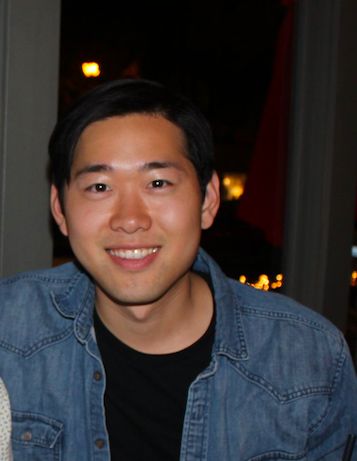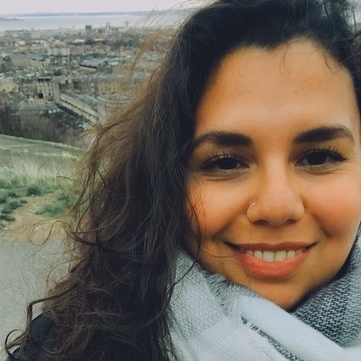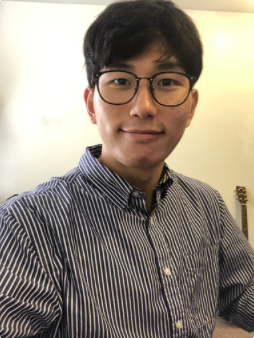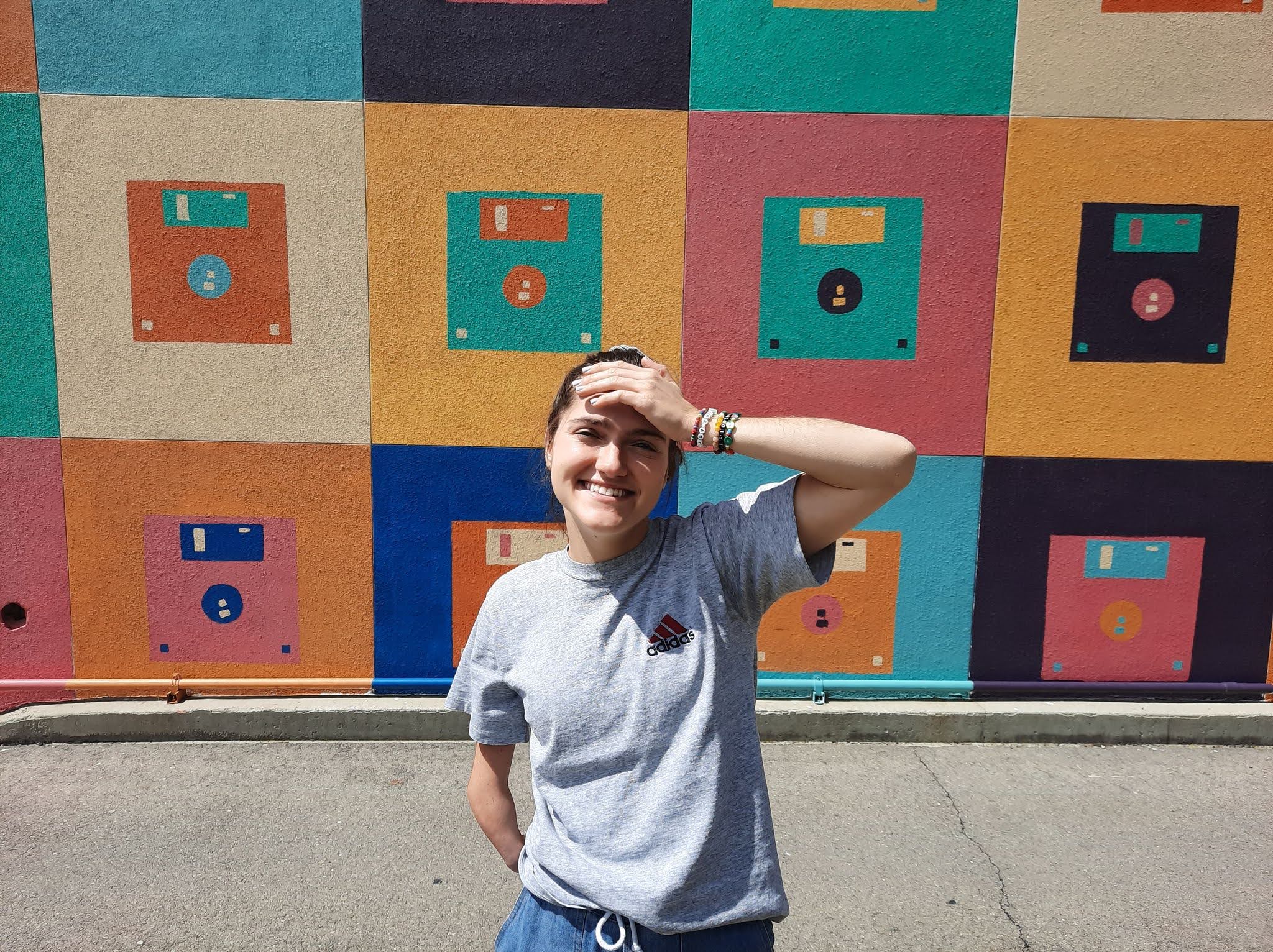Not only is Hallo out to create a more fun, effective, and affordable solution to learning and practicing English, but the app is backed by a team where over 90% of the members speak a second (or third or fourth) language. Several of them have even used Hallo to practice their English!
Below is their advice for learning a second language and what proved the most helpful for them!
The best way to learn a new language is by speaking, interacting with real people, and immersing yourself in the culture 24/7. Before I moved to America 13 years ago, I had studied English in school for a long time. I was fairly good at reading and grammar, but I didn't really know how to communicate and speak English until I moved to the United States. After making tons of mistakes and surrounding myself with the language 24/7, I started becoming fluent and believing that English is my language now.
One of the most helpful things for me was my desire to master the language and speak like a native speaker. I have big dreams, and I understand the importance of being able to communicate in English eloquently for me to achieve my dreams.
One of the most helpful things for me was my desire to master the language and speak like a native speaker. I have big dreams, and I understand the importance of being able to communicate in English eloquently for me to achieve my dreams.

Joon
CEO of Hallo, speaks English and Korean
I learned Spanish very quickly. Within 12 months, I was able to hold conversations with native speakers and express my thoughts clearly and quickly. From my experience here are two things I learned.
1. Set goals and be consistent - Write down why you want to learn a language in your journal or notes app. Then, try to visualize the experiences and opportunities that learning that language will present you. Now that you have the big picture written out, break it down into simple daily and weekly steps to help you get there.
2. Write and reflect - Since writing is an important part of language learning, it can be a great way to freely express your thoughts and feelings. You can take it further by writing down things you learned. For example, you could try summarizing a TV show you watched or talk about a song you like. These activities will force you to think in the language you are learning which will train your brain to work more efficiently.
1. Set goals and be consistent - Write down why you want to learn a language in your journal or notes app. Then, try to visualize the experiences and opportunities that learning that language will present you. Now that you have the big picture written out, break it down into simple daily and weekly steps to help you get there.
2. Write and reflect - Since writing is an important part of language learning, it can be a great way to freely express your thoughts and feelings. You can take it further by writing down things you learned. For example, you could try summarizing a TV show you watched or talk about a song you like. These activities will force you to think in the language you are learning which will train your brain to work more efficiently.

Ben
COO of Hallo, speaks English and Spanish
The most helpful advice I have gotten or would give is probably as follows (in no particular order).
1. When learning vocabulary, try to apply the words you learn as soon and as much as possible by using them.
2. Writing practice is crucial for cementing the principles you learn.
3. STUDY GRAMMAR!
4. If you're comfortable with what you're speaking about, you're not speaking about the right thing. Put yourself outside of your comfort zone, where you make mistakes and grow the most.
1. When learning vocabulary, try to apply the words you learn as soon and as much as possible by using them.
2. Writing practice is crucial for cementing the principles you learn.
3. STUDY GRAMMAR!
4. If you're comfortable with what you're speaking about, you're not speaking about the right thing. Put yourself outside of your comfort zone, where you make mistakes and grow the most.

Andrew
Lead Software Developer, speaks English, ASL, Spanish, Italian, German, French, Romanian, Finnish, Swedish, and Danish
Someone once told me: “even native speakers make mistakes. Even you, Dani, make mistakes in Spanish, so don’t expect to be perfect in English.” That phrase gave me so much comfort! We all make mistakes from time to time, and I lost valuable speaking opportunities by being afraid of making errors. It’s a bit funny, but back then, I felt that I had one chance to make it right-- one chance for others to understand me! I realized that I can always pause, reorganize my thoughts and carry on. In my experience, people are patient, and they try to help you when words don’t come up as quickly as you’d want.
If I could add something to that advice, I would say: be patient and keep going. In time, you will master all the grammar rules, but for now, just focus on what matters--communicating with other people. If you do it, you are on the right track to fluency.
If I could add something to that advice, I would say: be patient and keep going. In time, you will master all the grammar rules, but for now, just focus on what matters--communicating with other people. If you do it, you are on the right track to fluency.

Dani
Marketing Manager and Content Creator, speaks Spanish and English
Find an opportunity to speak as much as possible and accept that you will make mistakes. Everyone learning a language has to make a lot of mistakes before becoming fluent. I really struggled learning Korean in the classroom and thought I would never be good at it. But once I was in Korea I was able to speak Korean every day and through trial and error I became much, much better.

Chad
Senior Content Creator, speaks English and Korean
Someone once told me not to be frustrated even if I sounded unintelligent when learning French. I was smarter than anyone around me who was unkind to me when they didn’t understand me because I was learning a second language. Of course they spoke better than me; it was their native language! Don’t get discouraged or feel dumb because you don’t speak the way you want to. You’re so brave and intelligent for learning a new language.

Courtney
Head of Learning, speaks English and French
For me, finding a group of friends that spoke the language and speaking with them helped a ton. Or even going on a date with someone that speaks the language. Having a good conversation really boosted my confidence and motivated me to learn more about the language.

Daniel
UX/UI Designer, speaks Korean, English, and Chinese
Compliments have helped me the most. They help me stay motivated, and are an acknowledgment of the efforts and time I have put in. When I was learning English, one particular compliment that struck me was from a lady who told me that I did not have an accent. Granted, I had not spoken much but still! While it is absolutely fine to have an accent, I got more confident in my English, which led me to speak more and more.
In fact, this episode goes along with my advice, which is to speak as much as possible. I personally think that the best way to learn a new language is to speak the language. Although it is possible to be proficient in vocabulary and grammar without speaking, neither of them requires learners to apply what they've acquired right off the bat. Conversely, speaking requires you to use what you know immediately, which I believe helps what you have learned actually stick.
In fact, this episode goes along with my advice, which is to speak as much as possible. I personally think that the best way to learn a new language is to speak the language. Although it is possible to be proficient in vocabulary and grammar without speaking, neither of them requires learners to apply what they've acquired right off the bat. Conversely, speaking requires you to use what you know immediately, which I believe helps what you have learned actually stick.

Jaeyoung
Software Developer, speaks Korean, English, and Chinese
“Listen and repeat,” was one of the most helpful pieces of advice from one of my friends who is a native English speaker. In the beginning, I used to only focus on my listening skills and did not really pay attention to applying what I was practicing by repeating it. I started watching movies and listening to music and I would just let my tongue go after whatever I heard! That was really helpful for me and now my English has improved a ton!

Marwa
Student Community Coordinator, speaks Arabic, English, and Chinese
1. Don’t be afraid to speak imperfectly. If I could travel back in time, this is a piece of advice I would give to my younger self because it is the one I struggled with the most. When you speak a new language, it is easy to get caught up perfecting your sentence even before you say it, but practice makes perfect!
2. Increase daily exposure to a new language. This is about creating the right environment for language learning. Make plans so that you can be surrounded by a new language all day long. Listen to the radio, get a speaking partner, watch films in a new language.
3. Immerse yourself in the culture. Culture is the most effective and powerful means to absorb a new language! It helps you to remember new acquisitions easily because you learn things by association and memory. Learn vocabulary and expressions not in isolation, but in cultural context.
2. Increase daily exposure to a new language. This is about creating the right environment for language learning. Make plans so that you can be surrounded by a new language all day long. Listen to the radio, get a speaking partner, watch films in a new language.
3. Immerse yourself in the culture. Culture is the most effective and powerful means to absorb a new language! It helps you to remember new acquisitions easily because you learn things by association and memory. Learn vocabulary and expressions not in isolation, but in cultural context.

Jungah
Marketing Coordinator, speaks Korean and English
I would say the most helpful advice I had while learning a new language was to actually use the language and to focus on the basics, like grammar and vocab.
Using the language will definitely speed up the process of becoming comfortable with new languages, and Hallo does a good job of providing that opportunity. I personally think grabbing hold of grammar and vocab early is important, because if you just focus on speaking, you may pick up bad habits which may be difficult to fix in the future.
Using the language will definitely speed up the process of becoming comfortable with new languages, and Hallo does a good job of providing that opportunity. I personally think grabbing hold of grammar and vocab early is important, because if you just focus on speaking, you may pick up bad habits which may be difficult to fix in the future.

Kimin
Software Developer, speaks Korean and English
As a software engineer working at Hallo, it has been a great opportunity to improve my English by communicating with the Hallo team members. My conversations with the Hallo family have helped me to upgrade my speaking skills to the next level. So, I highly recommend practicing speaking English with native speakers to improve your English.

Sujindra
Software Developer, speaks Nepali and English
One of the most helpful things I discovered when I was learning Danish is that when native speakers repeat back what you say, you should listen! This probably means your sentence structure or grammar was a bit off, and when they clarify what you mean, they’ll say it correctly. Then, you can repeat the corrected sentence back to them and move on with conversation!

Liesel
PR Coordinator, speaks English and Danish
There is a quote I like that says “Fake it until you make it.” I think this quote applies to learning new languages. It can be challenging for those who started their language journey. At first, you have no idea what to speak and practice. Since I started my English journey ten years ago, there weren’t sufficient sources I could practice with, so I had to make it on my own. The thing is, English conversation is a living thing. You have to practice with actual people. The most efficient way is practicing English with a community. Find a role model and imitate their accent and pronunciation. Hallo is the place where I found my role model to fake it like native speakers.

Miran
Student Community Coordinator, speaks English and Korean
Put these tips into practice today! Download the Hallo app from the Play Store or the App Store and start practicing English.
